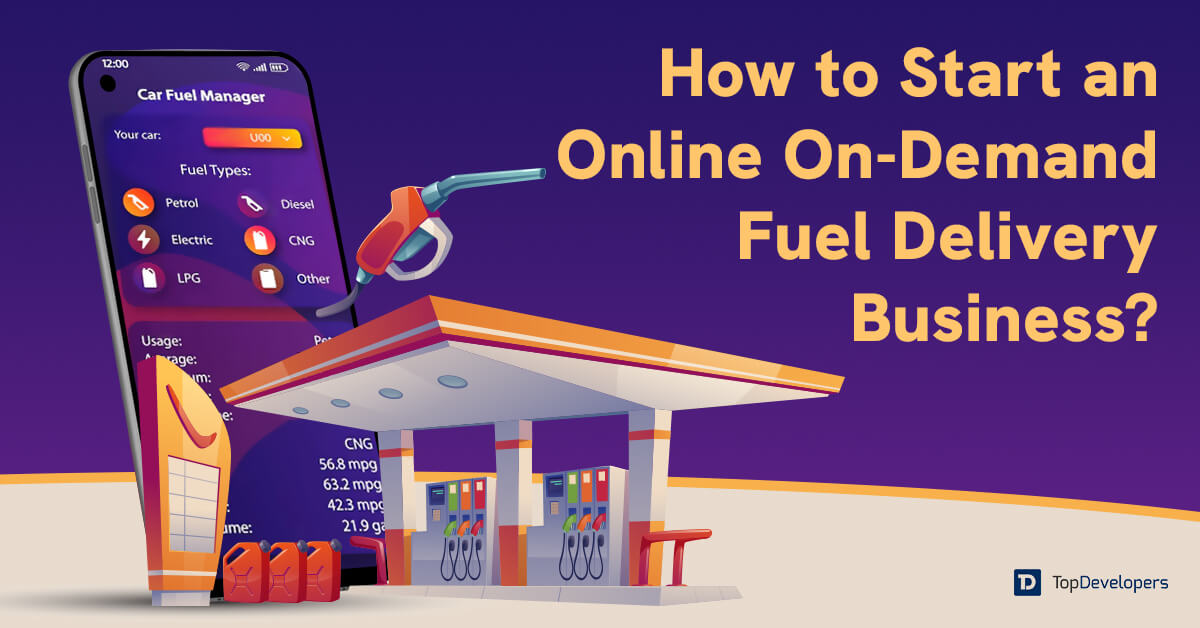
Cryptocurrency is one of the most innovative and profitable fields in today’s digital world. But a million-dollar question is how you start your own crypto business and make it profitable. In this short guide, we will share some of the best crypto business ideas that you can implement right away. You would also learn the importance of hiring a top cryptocurrency app development company that can help you create your own crypto app or platform.
Crypto business ideas can help startup entrepreneurs to take the right step in the right direction. Here are a few top business ideas for crypto business –
Table of Contents
- Starting Your Decentralized Finance (DeFi) Platforms
- Crypto Loyalty Systems Creation
- Offering Crypto-Based Subscription Models
- DAOs for Startup Governance
- Building Green Crypto Projects
- Web3 Identity and Reputation Systems
- Creating Tokenized Crowdfunding Platforms
- Physical Asset Tokenization
- Launching Crypto-Based Micro-Investing Platforms
- Starting a Crypto Tax Business
- Buying, Selling, and Trading Online Advertising Space
- Starting a Crypto Hardware Business
- Play to Earn Games
- Starting a Crypto Consulting Business
- Creating a Crypto NFT Business
- Decentralized Cloud Storage Startup
- Starting a Crypto Accounting Business
- Starting a Crypto Mining Business
- Starting Lending Crypto
- Building a Crypto App
- Crypto Payment Services
- Starting a Cryptocurrency Exchange
- Start Crypto payment gateway
- Crypto asset management services
- Product sales and services
- Crypto legal advice
Starting Your Decentralized Finance (DeFi) Platforms
Decentralized Finance, or DeFi, has revolutionized the financial sector by cutting out intermediaries and empowering users with full control over their assets. For startups, launching a DeFi platform opens the door to offering services like lending, borrowing, staking, and yield farming — all through smart contracts on blockchain networks like Ethereum, Solana, or Avalanche. The beauty of DeFi is its ability to serve the unbanked and underbanked with global access to financial tools.
To stand out in this growing space, entrepreneurs can focus on niche audiences or specific problems — for example, creating DeFi platforms for emerging markets or integrating multi-chain interoperability for easier asset movement. As security and transparency are key concerns, startups should prioritize audits and user education to build trust and adoption.
Crypto Loyalty Systems Creation
Traditional loyalty programs are often rigid, brand-specific, and difficult to redeem — blockchain solves that. With crypto-based loyalty systems, businesses can issue tokenized rewards that users can redeem, trade, or even stake for additional benefits. These tokens may also hold real value and help build a vibrant community around the brand, encouraging customer retention and word-of-mouth marketing.
This model fits perfectly into e-commerce, travel, food, and even online learning platforms. By allowing tokens to be used across partner ecosystems, startups can create a flexible and engaging reward experience. Plus, by tracking user interactions on-chain, companies can personalize rewards with much more precision.
Offering Crypto-Based Subscription Models
As crypto adoption grows, subscription-based services — from SaaS platforms to content creators — are starting to embrace decentralized payment models. Accepting cryptocurrencies, particularly stablecoins like USDT or USDC, reduces reliance on traditional banks and cuts down cross-border payment friction. This model also enables micro-subscriptions and unlocks access to global users who may not have access to credit cards or local payment options.
For startups, offering subscriptions via smart contracts means recurring payments can be automated securely. You can even offer tiered services using NFTs as membership passes, giving users a unique digital asset they can hold or trade. It’s a modern spin on membership that adds both utility and collectability.
DAOs for Startup Governance
Decentralized Autonomous Organizations (DAOs) are reshaping how communities and startups make decisions. With DAOs, businesses can allow stakeholders — including investors, users, and contributors — to vote on product features, funding allocations, and roadmap decisions. This transparent and democratic structure builds trust and reduces the need for a centralized leadership model.
Startups can use DAOs to raise capital via token sales and let early supporters feel genuinely involved in the company’s growth. It’s particularly effective in open-source projects, creator platforms, or any business that thrives on community involvement. The key is to design clear governance rules and ensure tokens reflect real utility or influence.
Building Green Crypto Projects
As environmental concerns rise, green crypto ventures are gaining serious momentum. These projects focus on reducing the carbon footprint of blockchain technology — through energy-efficient consensus algorithms (like Proof of Stake), renewable energy mining, or carbon offsetting mechanisms. Entrepreneurs who build sustainability-first platforms can appeal to both ethical investors and eco-conscious users.
A unique angle is launching tokens backed by renewable energy credits or partnering with clean energy providers to tokenize solar, wind, or hydro output. Additionally, mining-as-a-service platforms powered by green energy sources are attracting institutional interest. By blending environmental impact with financial returns, green crypto startups are becoming a compelling investment category.
Web3 Identity and Reputation Systems
In a decentralized world, identity is no longer tied to a username and password. Web3 identity solutions use blockchain to give users control over their digital credentials and reputation. For instance, decentralized identifiers (DIDs) allow users to verify themselves without handing over personal data, enhancing both privacy and security.
Startups can build platforms where these identities are used for freelance profiles, gig economy platforms, or e-commerce reviews. Over time, users accumulate verifiable achievements or feedback, which builds a trustworthy reputation across apps and platforms. This not only streamlines onboarding but also unlocks new ways to verify trust without a central authority.
Creating Tokenized Crowdfunding Platforms
Crowdfunding has evolved beyond just donation-based models — now, startups can offer real value to early supporters through tokenized fundraising. Instead of traditional equity, contributors receive digital tokens that represent ownership, profit-sharing rights, or platform utility. These tokens can appreciate in value or offer governance access, making them far more engaging than a simple thank-you note.
Creating a crowdfunding platform with blockchain unlocks transparency, smart contract-based milestone releases, and global accessibility. It’s an ideal model for creative projects, tech startups, and even real estate developments. By adding secondary market trading capabilities, you can boost liquidity and investor confidence.
Physical Asset Tokenization
Imagine owning a piece of fine art, a luxury car, or prime real estate — but digitally. Asset tokenization allows physical goods to be represented as blockchain-based tokens, which can be divided into fractional ownership shares. This increases liquidity and makes high-value assets accessible to a wider investor base.
Startups can build marketplaces where users buy, sell, or trade these fractional tokens, while still being legally tied to the underlying asset. Smart contracts handle ownership rights, dividends, and transfers, reducing the need for intermediaries. It’s particularly promising in real estate, collectibles, and commodities.
Launching Crypto-Based Micro-Investing Platforms
Not everyone can throw thousands into Bitcoin — but what if you could invest your spare change? Micro-investing platforms allow users to round up daily purchases and allocate those small amounts into curated crypto portfolios. It’s an excellent way to onboard crypto-curious users with low risk and high convenience.
Startups can differentiate by offering algorithmic rebalancing, goal-based investing (e.g., travel fund or emergency savings), and educational gamification. Add support for stablecoins and socially responsible tokens to appeal to mainstream users. With the right UX, these platforms can drive mass adoption by simplifying the first step into crypto investing.
Starting a Crypto Tax Business
Expert guidance on cryptocurrency taxation is in great demand due to the swift expansion of the crypto market. Commencing a crypto tax business can be a highly profitable idea, as it assists individuals and businesses in managing the intricacies of disclosing and remitting taxes on their digital assets. By providing services including tax preparation, conformity, and assistance during Internal Revenue Service audits, your business can establish itself as an indispensable asset in this constantly changing financial environment.
What makes this niche especially appealing is the rising global pressure for regulatory compliance. As governments tighten crypto tax reporting requirements, both casual traders and institutional investors are actively seeking qualified professionals who understand the nuances of digital asset classification, capital gains tracking, DeFi taxation, and NFT-related earnings. Startups can offer bespoke services or even launch user-friendly software platforms that automate transaction imports from popular wallets and exchanges. By staying up to date with legal frameworks and offering educational resources, a crypto tax firm can quickly gain trust and scale through referrals and long-term client relationships.
Buying, Selling, and Trading Online Advertising Space
The utilization of cryptocurrencies for the purpose of procuring, vending, and exchanging digital advertising space over the Internet can potentially bring a groundbreaking transformation in the domain of digital marketing. By virtue of their capability to expedite transactions while providing enhanced security features, cryptocurrencies have the potential to render greater transparency and efficiency to advertisers as well as publishers. One may explore the burgeoning market by developing an online platform or marketplace that facilitates these crypto-based transactions.
Starting a Crypto Hardware Business
As the adoption of cryptocurrencies continues to rise, so does the need for secure and efficient hardware wallets and mining equipment. Establishing a crypto hardware business can cater to this demand by manufacturing or selling hardware wallets, mining rigs, or other crypto-related hardware solutions. Ensuring top-notch security and performance will be key to success in this competitive niche.
Play to Earn Games
Play-to-earn games have gained immense popularity within the crypto community. By creating or investing in such games, you can offer gamers opportunities to earn cryptocurrency rewards while playing. The concept combines entertainment with financial incentives, attracting a wide user base and potentially generating revenue through in-game purchases or token sales.
Starting a Crypto Consulting Business
The complexities of the crypto space often leave individuals and businesses seeking expert advice. Starting a crypto consulting business can involve offering services such as blockchain development consultancy, investment strategy guidance, or regulatory compliance assistance. Providing valuable insights and solutions in this rapidly evolving field can help clients navigate the crypto landscape effectively
Creating a Crypto NFT Business
Non-fungible tokens (NFTs) have revolutionized the art, collectibles, and entertainment industries. Initiating a crypto NFT business involves creating, marketing, and selling NFT-based digital assets, such as art, music, or virtual real estate. As NFTs continue to gain popularity, establishing a strong presence in this market can be a profitable venture.
Decentralized Cloud Storage Startup
Decentralized cloud storage solutions powered by blockchain technology offer enhanced security and data privacy. Starting a decentralized cloud storage service can cater to users seeking alternatives to traditional cloud providers. Ensuring data integrity, accessibility, and competitive pricing can make your service stand out in this space.
Starting a Crypto Accounting Business
Cryptocurrency accounting services are in high demand as more individuals and businesses enter the crypto market. Establishing a crypto accounting business involves offering services like auditing, financial reporting, and asset tracking to ensure compliance and transparency. Becoming a trusted partner in managing crypto finances can be a valuable niche.
Starting a Crypto Mining Business
Crypto mining remains a fundamental aspect of blockchain networks. Starting a crypto mining business can involve setting up mining operations for popular cryptocurrencies or developing mining hardware. However, it’s important to consider factors like energy efficiency and sustainability to succeed in this competitive field.
Starting Lending Crypto
The crypto lending market has seen significant growth, offering individuals and institutions opportunities to earn interest on their crypto holdings. Initiating a crypto lending platform can connect borrowers and lenders, providing a secure environment for lending and borrowing crypto assets.
Building a Crypto App
Developing a crypto-focused mobile or web application can cater to various needs within the crypto ecosystem. Whether it’s a wallet app, a trading platform, a portfolio tracker, or a crypto news aggregator, creating a user-friendly and feature-rich app can attract a wide user base and generate revenue through ads, subscriptions, or transaction fees.
Crypto Payment Services
Cryptocurrency payment services bridge the gap between traditional finance and the crypto world. By offering businesses the ability to accept cryptocurrencies as a form of payment, you can tap into the growing interest in digital currencies as a medium of exchange. Providing seamless integration, low transaction fees, and risk mitigation services can attract merchants to your platform.
Starting a Cryptocurrency Exchange
Launching a cryptocurrency exchange involves providing a secure and efficient platform for buying, selling, and trading digital assets. As crypto trading gains mainstream acceptance, establishing a reputable exchange can be a lucrative endeavor. Regulatory compliance and robust security measures are paramount in this business.
If you aim big, play big. Creating your own crypto exchange wherein customers can buy and sell digital money on your platform is a good option. The transaction fees you earn for each deposit, withdrawal, transfer, and trade could pile up a good chunk of bucks. There are many cryptocurrency exchange platforms on the market – a little research would help you choose the one.
Exchanges –
- Decentralized and centralized
- Binary and hybrid
- Ad-based and clone script based
- White label and order book
Creating a Secure Cryptocurrency Exchange App: From Idea to Launch
Start Crypto payment gateway
Whopping demand for cryptocurrencies worldwide has shot the popularity of digital currency transactions. Quite similar to debit/credit card payments, businesses need cryptocurrency platforms for payment processes. Subscriptions, setup fees, and transaction fees on merchant services can help startups grow more extensive in the crypto business.
Crypto asset management services
By chance, if you have hands-on experience in the crypto business but want to get into a new venture in the same field, the startup of crypto asset management services is a good bet. Managing crypto portfolios of clients would get your enterprise a required boost in a short time. The services are quite similar to managing the finance portfolio. The startup’s job is to determine the risks, calculate them, and advise investors accordingly. Since such services are primarily digital, overheads and other expenses are cut off.
Product sales and services
The exchange of cryptocurrencies has permeated the selling of everyday products and services. In fact, dealing in crypto is a big business and is likely to boom in the coming years. Though many businesses don’t accept crypto as their mainstream payment, the number is now decreasing. In other words, more and more businesses are now welcoming crypto with open arms. Even further, El Salvador has become the first country in the world to accept Bitcoin as legal tender.
A startup idea for a crypto business could be having an eCommerce portal where dropshipping can be used to avoid inventory and shipping hassles. The products are shipped directly from the manufacturers or warehouses to the buyers in such a crypto business plan.
Crypto legal advice
Crypto business legal specialists deal with all legal aspects of cryptocurrencies. Crypto legal advisors ruminate on every trivial matter of crypto license, registration, trade, and security which makes them special. Hence, their charges are higher. Premium charges are set for such suggestions and legal matters to get crypto businesses out of predicaments. The laws for cryptocurrencies frequently change for every country. Many nations are setting guidelines to accept digital money, which can open up new opportunities for crypto startups to work with governments and other organizations.
Since you are clear about crypto business ideas, it is time to convert your ideas and thoughts into actionable measures. You can approach business and technology consultants at crypto app development companies who can guide you professionally and technically. You can then kick off the project and leverage the best mileage of accelerated crypto business today.
Rebecca Harrison combines her love for emerging technologies with her ability to explain them in clear, concise terms. With expertise in blockchain, IoT, cloud computing, big data, and cryptocurrency, Rebecca’s articles are essential reads for tech-savvy audiences. She has worked closely with tech startups and established companies to explore the potential of these transformative technologies.


